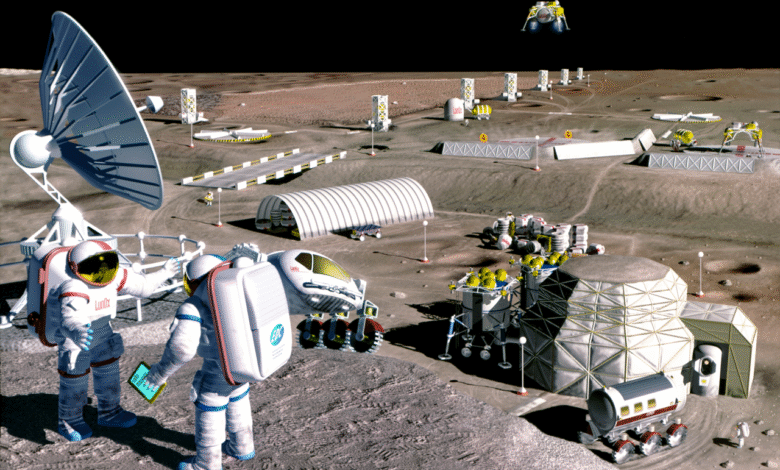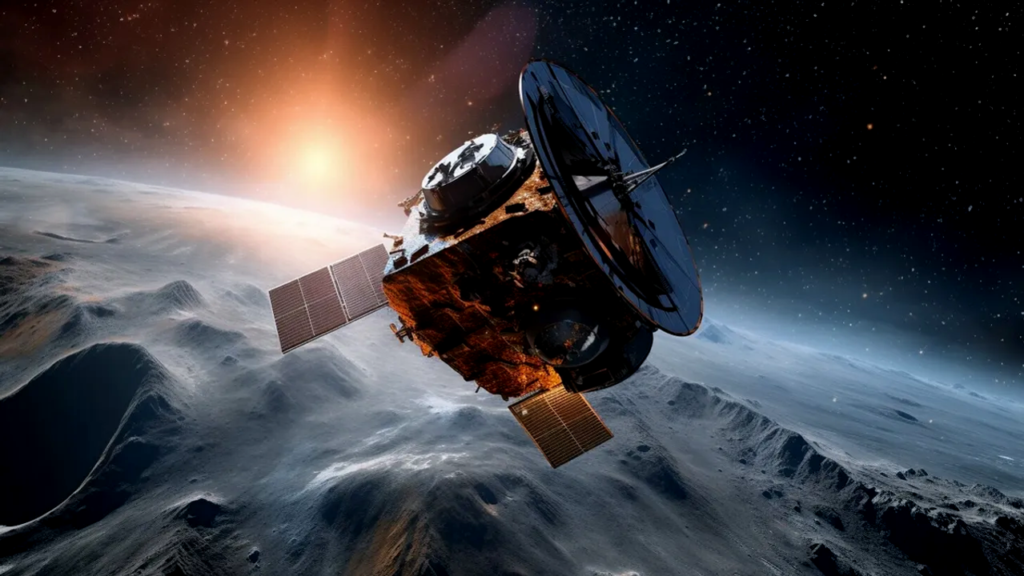
Space colonization has long been a subject of fascination and speculation, representing humanity’s enduring quest to explore beyond the confines of Earth. This article delves into the significance, challenges, current endeavors, and prospects of space colonization, envisioning a future where humanity expands its presence beyond our home planet.
Read More: Space Exploration Updates: Discovering the Secrets of the Universe
Introduction to Space Colonization

Space colonization represents humanity’s aspiration to expand beyond the confines of Earth and establish sustainable habitats in space. This ambitious endeavor has captivated the imagination of scientists, visionaries, and explorers for centuries, fueling our collective desire to explore the cosmos.
The Importance of Space Colonization for Humanity
Ensuring Survival
One of the primary motivations behind space colonization is to ensure the long-term survival of the human species. Earth faces various existential threats, including natural disasters, pandemics, and asteroid impacts. By establishing colonies on other celestial bodies, such as Mars or the Moon, we can safeguard the continuation of our civilization and mitigate the risk of extinction.
Expanding Resource Access
Space colonization offers access to a wealth of resources that are scarce or inaccessible on Earth. Asteroids, for example, contain valuable minerals, metals, and water ice, which could be mined and utilized to support future space settlements. By tapping into these extraterrestrial resources, we can alleviate the strain on Earth’s finite resources and fuel further technological innovation.
Scientific Advancements
Beyond its practical benefits, space colonization drives scientific exploration and discovery. From studying the effects of long-duration space travel on the human body to conducting experiments in microgravity environments, each mission expands our understanding of the universe and pushes the boundaries of human knowledge.
Challenges of Space Colonization
However, the journey towards space colonization is fraught with challenges that must be overcome.
Technological Hurdles
Developing the necessary technologies for sustained life beyond Earth presents formidable obstacles. From creating self-sustaining habitats to devising efficient propulsion systems for interstellar travel, overcoming these technical challenges requires relentless innovation and collaboration across scientific disciplines.
Psychological Impacts
Space colonization also poses psychological challenges for astronauts and colonists. The isolation, confinement, and prolonged periods of separation from Earth can take a toll on mental health, highlighting the need for robust support systems and psychological resilience training.
Ethical Considerations
As we venture into the cosmos, ethical dilemmas arise concerning issues such as property rights, governance structures, and the preservation of extraterrestrial environments. Balancing the pursuit of exploration with respect for indigenous life forms and ecosystems requires careful deliberation and international cooperation.
Current Efforts in Space Colonization

Despite these hurdles, humanity has made significant strides in the quest for space colonization.
Mars Missions
Initiatives like NASA’s Artemis program and SpaceX’s Starship project aim to establish human settlements on Mars within the coming decades. These missions represent a crucial step toward realizing the dream of interplanetary habitation.
Lunar Exploration
The Moon serves as a stepping stone for further exploration, with plans for lunar bases and research outposts already in motion. Collaborative efforts between space agencies and private enterprises promise to unlock the Moon’s potential as a staging ground for deeper space missions.
Space Habitats
In addition to planetary surfaces, space habitats offer a compelling vision for sustainable living in space. Projects like the International Space Station (ISS) and private ventures like Bigelow Aerospace’s inflatable habitats demonstrate the feasibility of long-term habitation beyond Earth.
Future Prospects of Space Colonization
Looking ahead, the future of space colonization holds boundless possibilities.
Interstellar Travel
Advancements in propulsion technology and theoretical concepts like warp drives offer tantalizing glimpses of interstellar travel. While still in the realm of science fiction, continued research may one day enable humanity to explore distant star systems and potentially colonize exoplanets.
Terraforming
The concept of terraforming – transforming hostile environments into habitable ones – presents a bold solution for colonizing planets like Mars. By altering planetary conditions through geoengineering, we could create environments conducive to human settlement and sustainment.
Extraterrestrial Economies
As space colonization becomes increasingly feasible, the emergence of extraterrestrial economies becomes a distinct possibility. From mining asteroids for rare minerals to establishing manufacturing facilities in orbit, these ventures could revolutionize global trade and commerce.
Social and Cultural Implications of Space Colonization
However, the implications of space colonization extend far beyond the realm of science and technology.
New Societal Structures
The formation of off-world colonies necessitates the development of new societal structures and governance frameworks. From democratic principles to communal living arrangements, these colonies offer an opportunity to reimagine social organization and cultural norms.
Cultural Exchange
Space colonization fosters cultural exchange and collaboration on a global scale. As diverse groups of people come together in pursuit of a shared vision, cultural barriers dissolve, giving rise to a new era of interstellar cooperation and understanding.
Impact on Earth’s Identity
Furthermore, space colonization challenges our perception of humanity’s place in the universe. By venturing into the cosmos, we redefine our collective identity as citizens of a vast and interconnected cosmos, transcending national boundaries and terrestrial concerns.
Sustainable Practices in Space Colonization

As we embark on this journey, sustainability must remain at the forefront of our efforts.
Recycling and Resource Management
Space colonies must adopt rigorous recycling and resource management practices to minimize waste and maximize efficiency. Closed-loop systems that repurpose water, air, and other resources are essential for long-term viability.
Renewable Energy Sources
Harnessing renewable energy sources such as solar and nuclear power is crucial for powering space habitats and reducing reliance on Earth-bound resources. Advanced energy technologies hold the key to sustainable living in the cosmos.
Environmental Impact Mitigation
Finally, we must consider the potential environmental impact of space colonization on celestial bodies and their ecosystems. Responsible stewardship and proactive conservation efforts are essential to preserve the integrity of extraterrestrial environments.
Read More: Beyond Our World: The Latest in Space Exploration
FAQs
- Is space colonization feasible with current technology? While current technology presents significant challenges, ongoing research and innovation make space colonization increasingly feasible in the coming decades.
- What are the ethical considerations of space colonization? Ethical considerations include issues of property rights, environmental preservation, and ensuring equitable access to extraterrestrial resources.
- How will space colonization impact life on Earth? Space colonization could lead to technological advancements, resource diversification, and cultural exchange, potentially benefiting life on Earth.
- What role do governments play in space colonization? Governments provide funding, regulation, and international cooperation for space exploration and colonization efforts.
- How can individuals contribute to space colonization efforts? Individuals can support space exploration through advocacy, education, and engagement with space-related initiatives and organizations.
The Final Words
Space colonization represents a bold vision for the future of humanity, offering a pathway to survival, prosperity, and exploration on an unprecedented scale. While formidable challenges lie ahead, our collective ingenuity and determination can propel us toward a future among the stars.







